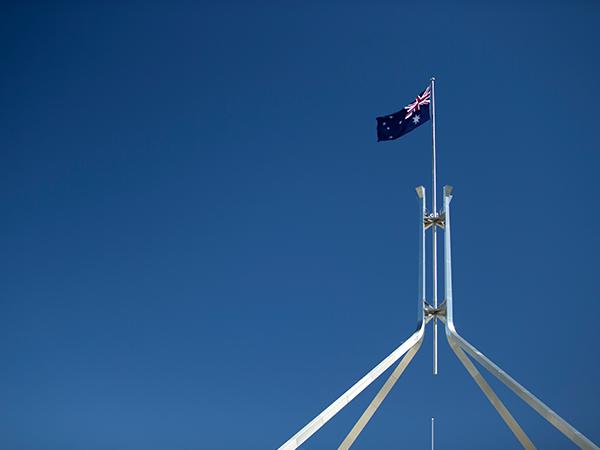2019 Federal Budget Insights
Posted on 15/4/2019
Overview:
Small business owners can now access a $30K instant access write-off, but as for the rest of the proposed measures, there is still an election to be held and much road to tread before the proposals come to fruition.
Following the delivery of the Federal Budget last week, the stage is now set for a busy period of pre-election campaigning with personal finance and business incentives once again looming as key battlegrounds. As is typical of a pre-election Budget, Josh Frydenberg and his treasury have promised a raft of sweeteners in an attempt to underline the economic credentials of the Coalition and ultimately entice critical swing voters.
This year’s headline act was the delivery of a cash budget surplus, which is estimated to be $7.1 billion for 2019-20, representing an increase of nearly $5 billion over the forward estimate. According to government and analysts, this has come about primarily due to a significant uptick in raw material prices, which has subsequently increased government revenues. While this is positive from a political standpoint and aligns with the Coalition’s mantra of fiscal responsibility, it has no immediate material impact on individuals or small-to-medium businesses. Further to this, Australia still has substantial national debt, which is estimated at 19.2% of GDP for 2018-19 plus annual interest repayments of $18 billion. While the Budget has taken measures to address this situation, it is expected that a reduction in net debt to zero will take until 2029-30 to realise. The delivery of a cash budget surplus and a plan to resolve national debt is mooted as a platform to strengthen Australia’s economy, however the significance of these moves will take some time to realise and will be the subject of much debate among economists.
Beyond the politics of surplus and debt, the Budget also introduced a range of measures set to come into effect in the short-to-medium term that may impact the individual finances and investment strategies. Importantly, many of these changes rely on bi-partisan agreement and accordingly will not be realised for some time. Despite this, it is worth understanding each of the key budget measures relating to business and personal finance and keeping an eye on legislation as it develops.
Outlined below are a selection of the key Budget take-outs and what they mean in practical terms.
Personal income tax cuts
Undoubtedly, the primary election sweetener in the Budget was the announcement of an increase to the maximum low- and middle-income tax offset (LMITO) from $530 to $1,080. While this is essentially an extension of the LMITO measures announced in the previous Budget, it is one of the more significant changes announced this year, as it will have an impact on tax returns filed for the 2018-19 Financial Year. As detailed below (see figures 1.1 and 1.2), the LMITO scales based on individual income with the maximum offset of $1,080 available to those earning between $48,000 – $90,000.
This change also coincides with a proposal to create mega tax threshold at a marginal rate of 30% for all Australians earning an annual income of between $45,001 – $200,000. According to post-budget analysis by The Australian Financial Review, this new mega-bracket will capture two out of three Australian workers. While this is still some way down the line – the change is due to come into effect from 2024-25 – it further incentivises income distribution either through a trust or family members, while bringing personal tax income rates broadly in-line with corporate rates. Ultimately, the Coalition hopes to simplify the tax system; however, in the interim it may in fact add additional complexity and will need to be monitored accordingly.
Instant asset write-off for small businesses
In another measure taken with immediate effect, from 7.30pm on Budget night, the Federal Government increased the instant asset write-off for small businesses from $25,000 to $30,000 while also expanding access to the asset write-off from entities with a maximum annual turnover of $10 million to entities with a maximum annual turnover of $50 million.
This is a positive move for small and medium business operators, and it will provide further certainty around capital expenditure. The change will be of particular significance for those businesses that hovered above the previous $10 million eligibility threshold and are now set to be the biggest beneficiaries of the expanded eligibility criteria.
Medicare levy shifts
As always, health formed a substantial part of this year’s Budget and looms as a major election battleground. While there was a raft of health funding measures announced, some minor changes to the Medicare levy seemingly slipped under the radar. Proposed increases to the Medicare levy which were included in last year’s Federal Budget have been scrapped and the levy will remain at 2% of taxable income. Further to this, the Medicare levy low-income thresholds have been increased as follows:
- Singles $22,398 (previously $21,980)
- Families $37,794 (previously $37,089)
- Single seniors and pensioners $35,418 (previously $34,758)
- Senior and pensioner families $49,304 (previously $48,385)
As noted, these are minor changes that we anticipate will have limited impacts on a small number of Australians.
Crackdown on tax avoidance
Corporate tax avoidance is somewhat the Zeitgeist of the moment and the Federal Government has announced a further $1 billion in funding for the Australian Tax Office’s Tax Avoidance Taskforce over the next four years.
This additional funding is designed provide the Taskforce with the additional resources it requires to increase its audit foci on multinationals and high net-worth individuals, though these changes will not impact small business.
The Government also announced an extension of its Black Economy Budget measures, which is designed to increase the accountability of ABN holders. Under this change, from 1 July 2021, ABN holders will be required to lodge annual tax returns and confirm the accuracy of their ABN details on the Australian Business Register or risk having their ABN stripped. It is not anticipated that this change will add any substantial burden for compliant ABN holders; rather, it is designed to crack-down on those who manipulate the system while providing an estimated saving of $22.2 million to the Budget over the forward estimate.
Luxury car tax changes
Farmers and tourism operators are set to be the beneficiaries of increases to the luxury car tax refund scheme. From 1 July 2019, eligible applicants will be able to secure a refund of up to $10,000 for vehicles purchased that incur the luxury car tax.
This measure more than triples the current maximum refund of $3,000 available to primary producers and tourism operators while the criteria for eligibility has remained the same and can be found here. This is a positive move, although the incentive for the continued existence of a luxury car tax in any form remains unclear given that it was introduced to protect a local car industry that no longer exists.
Superannuation changes
Under the changes proposed by the Coalition, from 1 July 2020, there will be two major changes to superannuation impacting those aged 65 and 66.
Firstly, Australians aged 65 and 66 will be eligible to make voluntary pre- and post-tax contributions to their superannuation without having to satisfy the criteria of the current work test, which stipulates that an individual must work a minimum of 40 hours over a 30-day period. This is set to benefit retirees in the age bracket who have alternate income sources and who will be able to make contributions of up to $25,000 into their super before tax and then withdraw that contribution immediately, without having to pay tax.
The second change will enable 65- and 66-year old Australians to make three years’ worth of post-tax super contributions – or up to $300,000 – in a single year. Importantly, this change will increase flexibility for those who meet the eligibility criteria and further incentivises voluntary superannuation contributions.
Deferral of the Division 7A amendments
Original proposed as part of the 2016 Federal Budget, measures to improve the Division 7A of the Income Tax Assessment Act 1936 have been further delayed from 1 July 2019 to 1 July 2020. These changes are designed to simplify laws relating to the distribution of dividends by private companies; however, this decision points to a lack of conviction in government about the specifics of what is being proposed. While it is frustrating to see further delays, as the existing law is in dire need of simplification, the Government will now undertake further consultation and there is another year to prepare for any changes before they come into effect.
In summary, there is nothing in the proposed budget that should be the cause for concern. There is over a month to go until the Federal election, and should the Coalition be re-elected, there is still a long path yet to tread for their proposals to see the light of day. In the interim, these proposals should be taken as part and parcel of their election platform and not impacting your immediate horizon, with the exception of the instant asset write-off for small businesses.
For our valued clients that might have specific questions about their business or portfolio, please contact your Perk’s team and they will be happy to assist.
If you would like to know more about how Perks enables you to plan for the future and move forward with confidence, please contact us on: +61 8 8273 9300.
Related insights.

Lisa Pritchard Joins Perks as General Manager – Operations
10/7/2025
General News
In this newly created role, Lisa will lead a broad portfolio of business and corporate services for...
Read more.

Perks New Leadership Announcements
10/7/2025
General News
Perks expands its Senior Leadership Team with the appointment of one new Director, four Associate Directors and...
Read more.

ATO Interest Charges Tax Deduction Removed from July 2025
4/7/2025
Updated July 2025- Tax Advisory
Effective 1 July 2025, the Australian Taxation Office (ATO) will no longer allow taxpayers to claim a...
Read more.
Want to receive our insights?
Sign up to receive important financial updates, useful tips, industry trends and whitepapers.